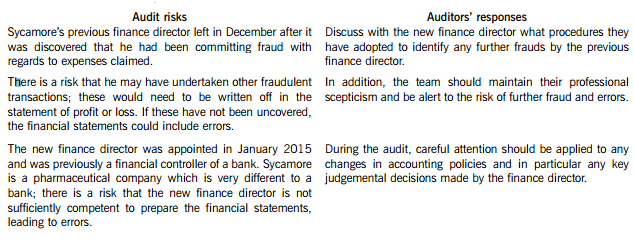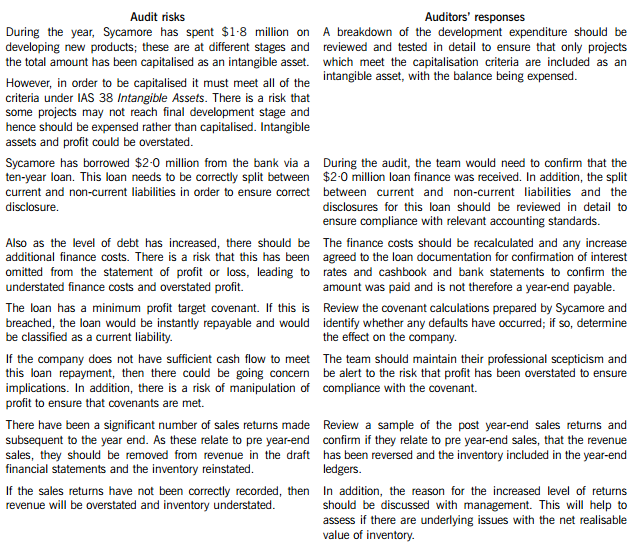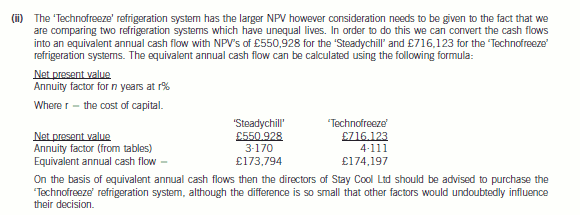辽宁省ACCA考试成绩查询时间
发布时间:2021-01-06
辽宁的考生们,想必都对ACCA考试信心满满吧,考试了之后肯定很想知道考试分数吧。跟着51题库考试学习网一起来了解2021ACCA考试成绩查询时间吧。
2020年12月ACCA考试成绩预计2021年1月18日左右公布,在此分享几点成绩查询后考生们比较关注的几点事项,以便大家查阅!
ACCA考试成绩合格标准:ACCA考试每科满分为100分,50分合格。ACCA考试不会控制一定的考试通过率,因此每门考试只要满足50分及以上即算作通过考试。
ACCA证书申请:
1、通过ACCA专业资格大纲13门课程的考试(其中9门根据学员的教育和专业背景可申请不同程度的免试);
2、完成职业道德与专业技能模块(EPSM);
3、至少三年的相关工作经验。
ACCA证书申请流程:
1、 符合会员的必要条件”3E”的准会员可以填写《ACCA会员申请表》。《ACCA会员申请表》可以直接登陆ACCA网站下载。对于暂时未满足会员的必要条件的准会员,可以在条件满足的任何时间向ACCA递交ACCA会员申请表;
2、 ACCA总部将对会员申请材料进行审核,完全符合条件者将被批准成为ACCA会员,并会收到ACCA英国总部颁发的ACCA会员证书。一般这个过程需要两个月的时间;成为会员约五年后,经申请和资格审查,可以成为资深会员(FCCA)。
3、 ACCA每年2月份和8月份会分别公布上一年12月份和本年6月份的考试成绩。每一个通过ACCA全部考试的学员随后会收到ACCA英国总部颁发的ACCA准会员证书,以确认学员成功通过所有考试。(一般收到时间是3月初和9月初)。
ACCA官方公布的以下情况下之一者,可以申请复议:
(1)参加了考试,并提交了答卷,却通知缺席考试;
(2)缺席考试,却收到考试成绩;
(3)对考试成绩有异议。
如果符合以上情况之一,ACCA学员必须在考试成绩发布日后的15个工作日内提出查卷申请。如果成绩有误,会在下次报考截止日期前收到改正后的成绩。
ACCA继续教育:为保持并更新专业知识和技能,ACCA要求所有会员必须每年参加累计不少于40学时的继续教育。
以上是辽宁地区的ACCA考试成绩查询时间,希望对辽宁考生有所帮助。51题库考试学习网也会为更多地区的考生带来相关资讯,请继续关注51题库考试学习网。
下面小编为大家准备了 ACCA考试 的相关考题,供大家学习参考。
You are the audit supervisor of Maple & Co and are currently planning the audit of an existing client, Sycamore Science Co (Sycamore), whose year end was 30 April 2015. Sycamore is a pharmaceutical company, which manufactures and supplies a wide range of medical supplies. The draft financial statements show revenue of $35·6 million and profit before tax of $5·9 million.
Sycamore’s previous finance director left the company in December 2014 after it was discovered that he had been claiming fraudulent expenses from the company for a significant period of time. A new finance director was appointed in January 2015 who was previously a financial controller of a bank, and she has expressed surprise that Maple & Co had not uncovered the fraud during last year’s audit.
During the year Sycamore has spent $1·8 million on developing several new products. These projects are at different stages of development and the draft financial statements show the full amount of $1·8 million within intangible assets. In order to fund this development, $2·0 million was borrowed from the bank and is due for repayment over a ten-year period. The bank has attached minimum profit targets as part of the loan covenants.
The new finance director has informed the audit partner that since the year end there has been an increased number of sales returns and that in the month of May over $0·5 million of goods sold in April were returned.
Maple & Co attended the year-end inventory count at Sycamore’s warehouse. The auditor present raised concerns that during the count there were movements of goods in and out the warehouse and this process did not seem well controlled.
During the year, a review of plant and equipment in the factory was undertaken and surplus plant was sold, resulting in a profit on disposal of $210,000.
Required:
(a) State Maples & Co’s responsibilities in relation to the prevention and detection of fraud and error. (4 marks)
(b) Describe SIX audit risks, and explain the auditor’s response to each risk, in planning the audit of Sycamore Science Co. (12 marks)
(c) Sycamore’s new finance director has read about review engagements and is interested in the possibility of Maple & Co undertaking these in the future. However, she is unsure how these engagements differ from an external audit and how much assurance would be gained from this type of engagement.
Required:
(i) Explain the purpose of review engagements and how these differ from external audits; and (2 marks)
(ii) Describe the level of assurance provided by external audits and review engagements. (2 marks)
(a) Fraud responsibility
Maple & Co must conduct an audit in accordance with ISA 240 The Auditor’s Responsibilities Relating to Fraud in an Audit of Financial Statements and are responsible for obtaining reasonable assurance that the financial statements taken as a whole are free from material misstatement, whether caused by fraud or error.
In order to fulfil this responsibility, Maple & Co is required to identify and assess the risks of material misstatement of the financial statements due to fraud.
They need to obtain sufficient appropriate audit evidence regarding the assessed risks of material misstatement due to fraud, through designing and implementing appropriate responses. In addition, Maple & Co must respond appropriately to fraud or suspected fraud identified during the audit.
When obtaining reasonable assurance, Maple & Co is responsible for maintaining professional scepticism throughout the audit, considering the potential for management override of controls and recognising the fact that audit procedures which are effective in detecting error may not be effective in detecting fraud.
To ensure that the whole engagement team is aware of the risks and responsibilities for fraud and error, ISAs require that a discussion is held within the team. For members not present at the meeting, Sycamore’s audit engagement partner should determine which matters are to be communicated to them.
(b) Audit risks and auditors’ responses



(c) (i) Review engagements
Review engagements are often undertaken as an alternative to an audit, and involve a practitioner reviewing financial data, such as six-monthly figures. This would involve the practitioner undertaking procedures to state whether anything has come to their attention which causes the practitioner to believe that the financial data is not in accordance with the financial reporting framework.
A review engagement differs to an external audit in that the procedures undertaken are not nearly as comprehensive as those in an audit, with procedures such as analytical review and enquiry used extensively. In addition, the practitioner does not need to comply with ISAs as these only relate to external audits.
(ii) Levels of assurance
The level of assurance provided by audit and review engagements is as follows:
External audit – A high but not absolute level of assurance is provided, this is known as reasonable assurance. This provides comfort that the financial statements present fairly in all material respects (or are true and fair) and are free of material misstatements.
Review engagements – where an opinion is being provided, the practitioner gathers sufficient evidence to be satisfied that the subject matter is plausible; in this case negative assurance is given whereby the practitioner confirms that nothing has come to their attention which indicates that the subject matter contains material misstatements.
(ii) Recommend which of the refrigeration systems should be purchased. You should state your reasons
which must be supported by relevant calculations. (3 marks)

(c) Explain how absolutist (dogmatic) and relativist (pragmatic) ethical assumptions would affect the outcome
of Anne’s decision. (6 marks)
(c) Absolutism and relativism
Absolutism and relativism represent two extreme positions of ethical assumptions.
Definitions
An absolutist assumption is one that believes that there are ‘eternal’ rules that should guide all ethical and moral decision
making in all situations. Accordingly, in any given situation, there is likely to be one right course of action regardless of the
outcome. An absolutist believes that this should be chosen regardless of the consequences or the cost. A dogmatic approach
to morality is an example of an absolutist approach to ethics. A dogmatic assumption is one that is accepted without
discussion or debate.
Relativist assumptions are ‘situational’ in nature. Rather than arguing that there is a single right choice, a relativist will tend
to adopt a pragmatic approach and decide, in the light of the situation being considered, which is the best outcome. This will
involve a decision on what outcome is the most favourable and that is a matter of personal judgment.
Outcomes
If Anne were to adopt absolutist/dogmatic assumptions, she would be likely to decide that she would need to pursue what
she perceives is the right course of action regardless of cost to herself or the relationship with the client or her manager. Given
that she unearthed a suspect and unaccounted-for payment, and that she received an inadequate explanation from the client,
she would probably recommend extension to the audit beyond the weekend.
If Ann were to adopt relativist or pragmatic assumptions, she would have a potentially much more complicated decision to
make. She would have to decide whether it was more important, ethically, to yield to the pressure from Zachary in the
interests of her short-term career interests or ‘hold out’ to protect the interests of the shareholders. Anne could recommend
sign off and trust the FD’s explanation but she is more likely to seek further evidence or assurance from the company before
she does so.
声明:本文内容由互联网用户自发贡献自行上传,本网站不拥有所有权,未作人工编辑处理,也不承担相关法律责任。如果您发现有涉嫌版权的内容,欢迎发送邮件至:contact@51tk.com 进行举报,并提供相关证据,工作人员会在5个工作日内联系你,一经查实,本站将立刻删除涉嫌侵权内容。
- 2020-08-12
- 2019-03-20
- 2019-03-20
- 2020-08-19
- 2021-04-04
- 2020-08-12
- 2020-08-12
- 2020-01-10
- 2020-09-05
- 2021-04-04
- 2020-08-12
- 2020-01-10
- 2020-10-18
- 2020-08-12
- 2020-01-10
- 2020-01-10
- 2021-01-06
- 2020-09-05
- 2020-12-24
- 2020-01-10
- 2020-09-05
- 2020-10-18
- 2019-01-05
- 2020-01-10
- 2020-08-12
- 2021-04-04
- 2020-01-01
- 2020-01-01
- 2020-09-05
- 2021-05-22